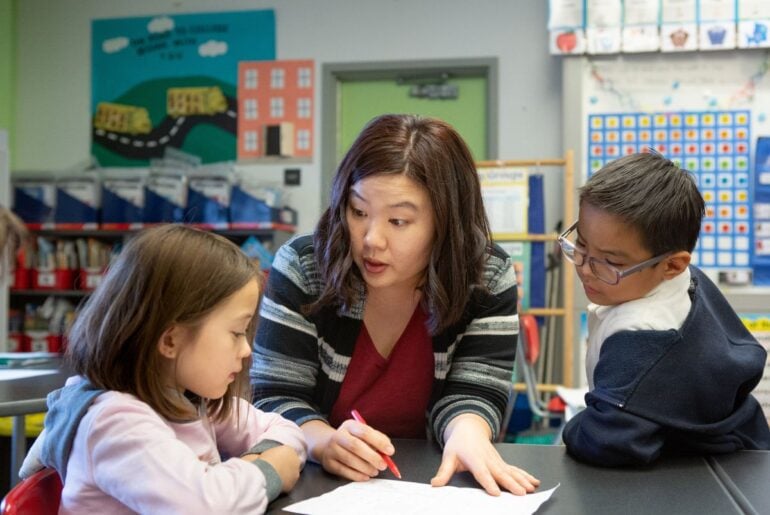Do you know what it’s like to be one of the 3.8 million public school teachers in America’s classrooms? Teacher Appreciation Week provides a timely reminder to parents, students, and the community at large to reflect on the work that educators do to nurture young people and prepare them for the future.
Teaching can be a fulfilling job, but educators are under significant stress. According to Pew Research Center surveys, 77 percent of K-12 public school teachers frequently find their job stressful, and 68 percent say it’s often overwhelming. Elementary and middle school teachers are even more likely to report that their jobs are stressful or overwhelming.
When asked what they want the public to know about them, teachers’ most frequent response was that teaching is a difficult job. Other common responses were that teachers really care about their students, and that teaching is an undervalued profession.
Another study of public school teachers conducted by researchers at the University of Missouri found that 78 percent of teachers have thought about quitting the profession since the pandemic. The researchers called teacher stress and burnout a “major public health challenge confronting the education system.”
What are the sources of teacher stress?
The main reasons cited in the 2025 University of Missouri study for teachers wanting to quit the profession were a lack of administrative support, high workloads paired with low salaries, and challenging student behaviors. Similarly, the 2024 State of the American Teacher Survey found the top sources of job-related stress for teachers were managing student behavior, low salary, administrative work outside of teaching, and spending too many hours working — teachers reported working 53 hours a week on average.
Some of these stressors have always been concerns for the profession, but there are extra factors piling on for educators in recent years. In a 2024 survey by the Connecticut Education Association, teachers cited many of the same stressors listed above, plus issues that come along with politicians and non-educators making decisions that affect education.
Many public school teachers around the country agree that politics are interfering with education. As one teacher in Utah summed up, “Teachers feel that there’s an anti-public ed sentiment out there…. We just feel threatened, and we feel for our students because we know that they will not be well served.”
Some of the reasons for increased challenges with managing student behavior include the current youth mental health crisis and the growing presence of smartphones and technology (factors which health experts believe are related).
“Our students are coming into school every day with greater needs in every aspect of their lives, including around their mental health. But the support just isn’t there to help teachers and staff,” another Utah teacher explained.
“Students are addicted to these devices. But we’re told we’re the ones who must enforce the rules. Again, it all accumulates. We’re all being weighed down by this daily work that has little to do with real teaching,” said a teacher in Massachusetts.
When teachers and parents work together to address social and emotional concerns, we can help improve outcomes for our children. But teachers, like parents, simply need more support to handle the unique challenges that young people face today.







